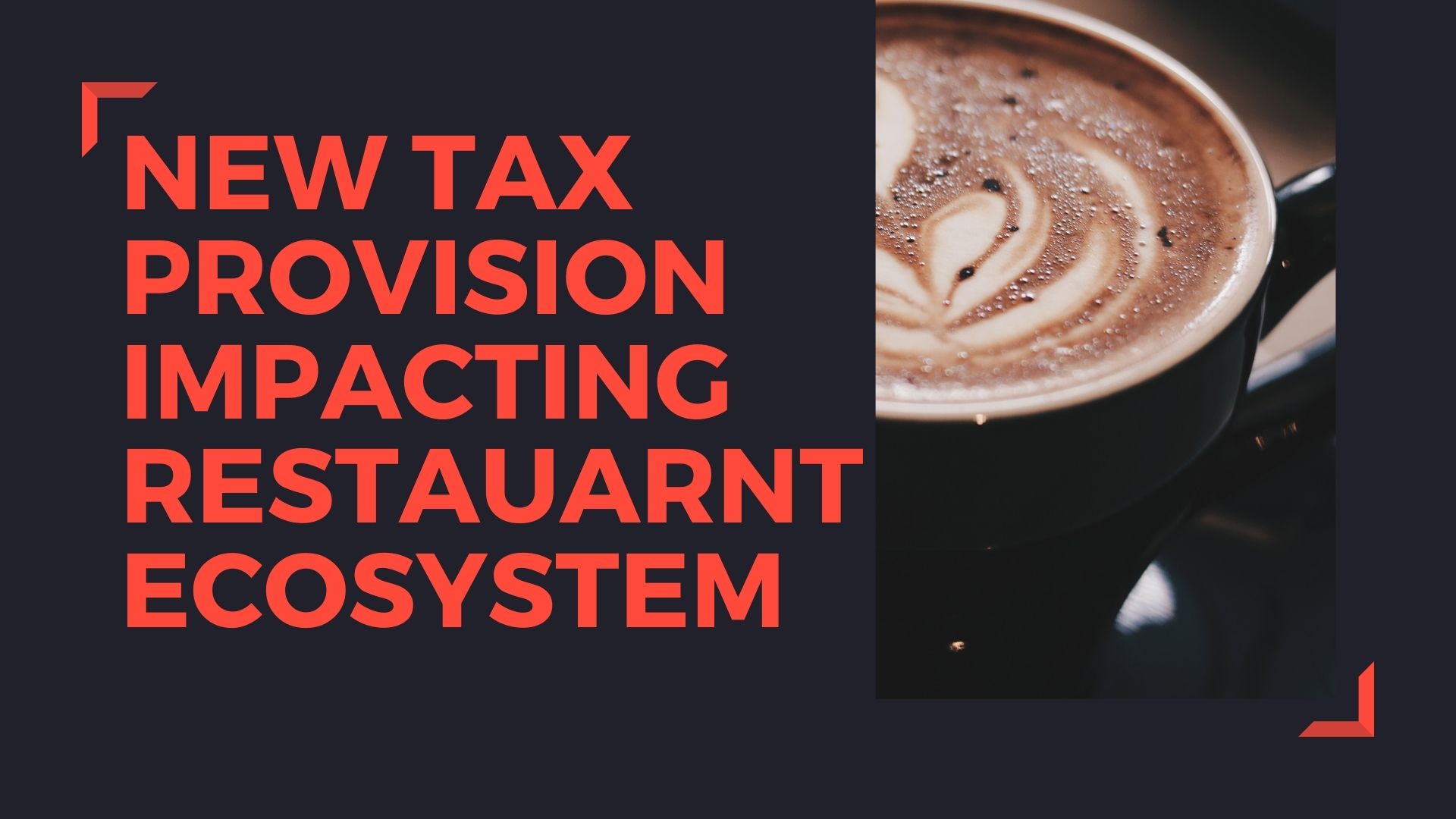IMPACT ON RESTAURANT ECOSYSTEM
The recent notification stated that food ordering platforms have to collect tax on behalf of all restaurants. The new provision comes as a result of this notification issued by the Finance Ministry under which the food aggregators are directed to pay 5% of GST for cooked food orders through their platforms.
At the same time, platforms are also expected to have an additional compliance load due to the change in the tax regime.
Under section 9(5) of the Goods and Services Tax Act, 2017 the e-commerce operator (ECO) shall be liable to pay GST on restaurant services provided, with effect from the 1st January 2022, through Ecosystem.
The circular notifies the five percent GST requirement will be an addition to the existing 18 percent GST that platforms need to pay for offering delivery services through platforms. The tax will be applied to the price of the food item that platforms are delivering to customers. All of the taxes are eventually included in the customers’ bills. Restaurants would collect the GST 18 percent commission and five percent food GST and pay it to the government.
What is the purpose?
The GST Council approved this transfer of responsibility of collecting and depositing tax on food aggregators in order to crack down on restaurants that don’t pay taxes. The government had noticed that several restaurants were evading taxes though taxes were being collected from the consumer.
This was resulting in tax evasion. There were differences between the taxable value reported by Food Delivery platforms in the TCS returns filed and the taxable value of supplies reported by restaurants in the returns. This difference was notified by the Department.
The government estimates showed that tax loss to the exchequer due to alleged underreporting by food delivery aggregators is INR 2,000 over the past two years. Making these platforms liable for GST deposits would curb tax evasion.
How is this impacting the consumers?
The GST Amendments are likely to impact consumers as the cost of ordering from smaller restaurants that were outside this notification will go up if ordered through food aggregators.
Tax experts however mentioned that small restaurant owners who come under the GST threshold of generating an annual revenue of less than INR 40,00,000 are not required to pay GST in a normal scenario.







